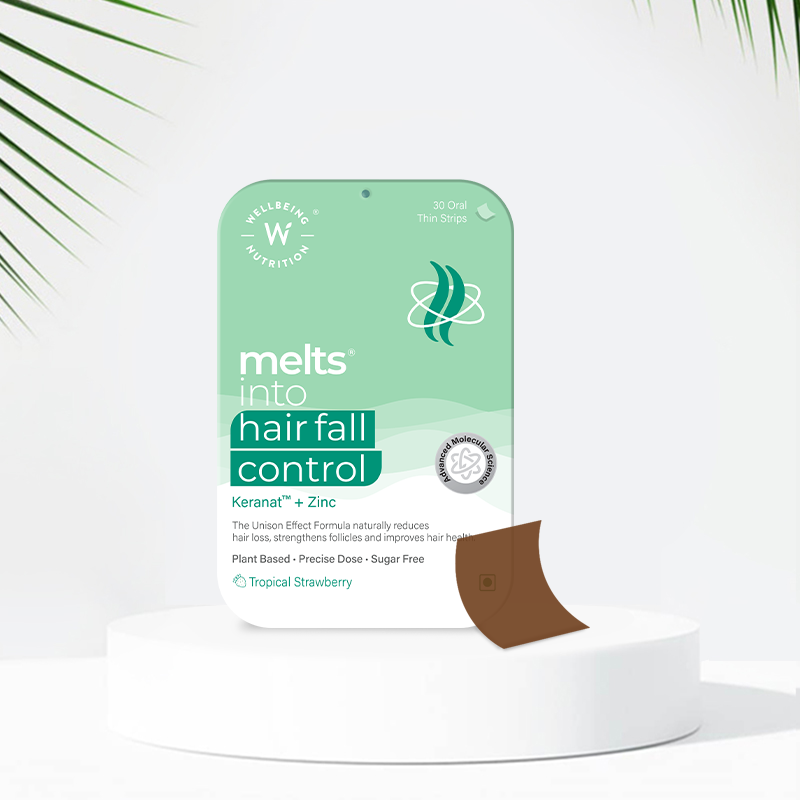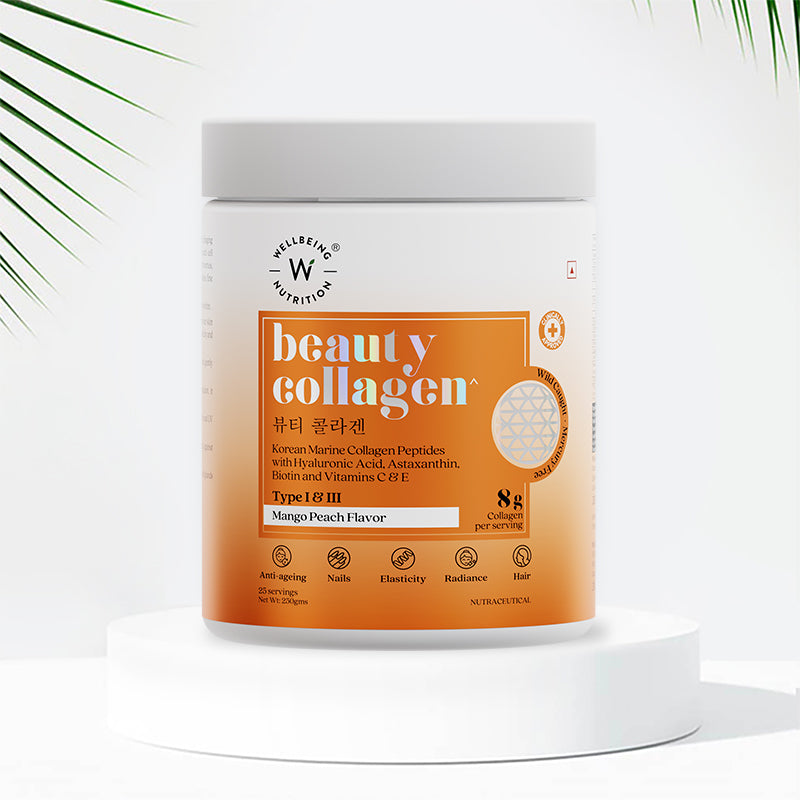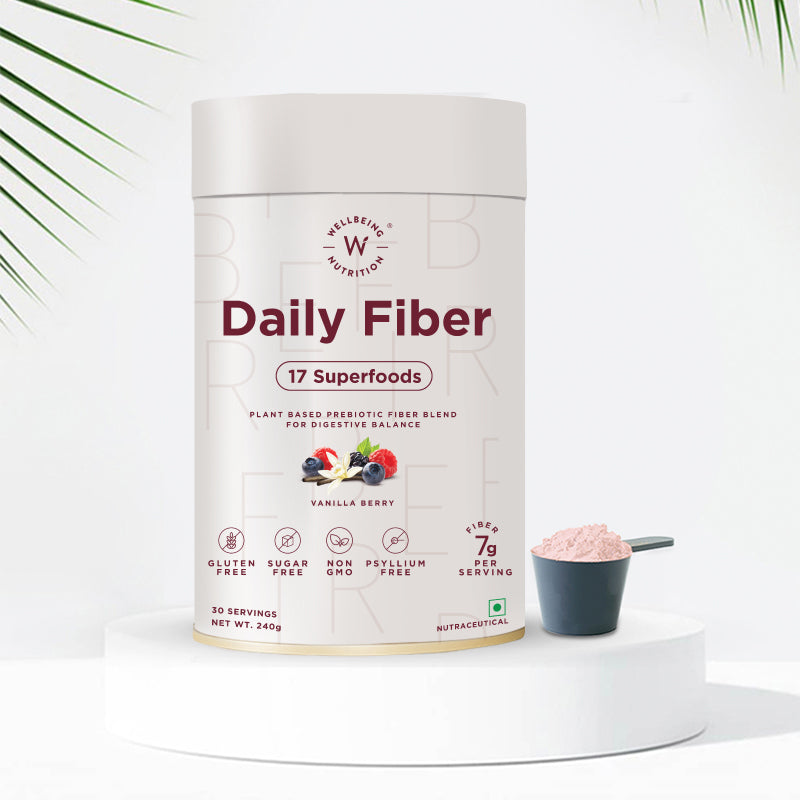Effect of PCOS on Skin

Polycystic Ovary Syndrome (PCOS) is a complex hormonal disorder that affects many aspects of a woman's health, including her skin. The skin manifestations of PCOS can be distressing and can have a significant impact on a woman's self-esteem and quality of life. Understanding the connection between PCOS and skin problems is crucial in order to effectively manage and treat these issues.
Understanding PCOS and Its Impact on Skin
Defining PCOS: A Brief Overview
PCOS is a complex endocrine disorder that affects millions of women worldwide. It is characterized by hormonal imbalances, specifically an excess of androgens (male hormones) in the body. This hormonal imbalance can disrupt the normal function of the ovaries, leading to the growth of ovarian cysts, irregular menstrual cycles, and a range of other symptoms such as weight gain, fatigue, and fertility issues.
Women with PCOS often experience challenges in managing their weight due to insulin resistance, which can further exacerbate the hormonal imbalances in the body. This can create a vicious cycle where weight gain leads to increased insulin resistance, which in turn worsens the symptoms of PCOS.
How PCOS Affects the Skin
One of the most noticeable effects of PCOS on the skin is the development of various skin conditions. These can include hormonal acne, which is often characterized by deep, painful cysts along the jawline and chin. The excess androgens in the body stimulate the sebaceous glands to produce more oil, leading to clogged pores and acne breakouts.
In addition to acne, women with PCOS may also experience hirsutism, which is the abnormal growth of hair in areas where men typically grow hair, such as the face, chest, and back. This can be distressing for many women and may impact their self-esteem and body image. Male pattern baldness, another common skin manifestation of PCOS, can also occur due to hormonal imbalances affecting hair follicles on the scalp.
Skin Manifestations of PCOS
Common Skin Conditions Associated with PCOS
PCOS can trigger or exacerbate several skin conditions.
Hormonal acne is a common complaint among women with PCOS, characterized by pimples, blackheads, and whiteheads primarily on the face.
Excessive facial and body hair growth, known as hirsutism, is another common manifestation. Additionally, some women with PCOS may experience male pattern baldness and an uneven skin tone.
It is important to note that the skin manifestations of PCOS can have a significant impact on an individual's self-esteem and quality of life. Dealing with persistent acne or unwanted hair growth can lead to feelings of self-consciousness and emotional distress. Seeking support from healthcare providers and dermatologists can help in managing these skin conditions effectively.
The Severity and Frequency of Skin Manifestations
The severity and frequency of skin manifestations can vary among individuals with PCOS. Some women may experience mild acne or minimal facial hair, while others may struggle with severe acne and excessive hair growth. The frequency and intensity of these skin problems can also fluctuate throughout different stages of a woman's life, such as during puberty, pregnancy, or menopause.
Furthermore, the hormonal fluctuations associated with PCOS can contribute to the development of other skin issues, such as oily skin, skin tags, and dark patches known as acanthosis nigricans. These additional skin concerns can further add to the complexity of managing PCOS-related skin manifestations and may require a tailored approach in treatment and skincare routines.
The Role of Hormones in PCOS Skin Problems
Hormonal Imbalance and Its Effects on Skin
The hormonal imbalance in PCOS, particularly an excess of androgens like testosterone, directly influences the skin. Elevated androgen levels can stimulate the sebaceous glands, leading to increased oil production, clogged pores, and the development of acne. Additionally, these hormones can stimulate hair follicles to produce thicker and darker hair, resulting in hirsutism.
Moreover, the impact of hormonal imbalance on skin goes beyond just acne and hirsutism. It can also lead to skin tags, which are small, benign growths that commonly occur in skin folds such as the neck, armpits, and groin. These skin tags are believed to be linked to insulin resistance, a common issue in women with PCOS, further highlighting the intricate relationship between hormones and skin health.
The Connection Between PCOS and Hormonal Acne
PCOS-related hormonal acne is typically caused by the overproduction of sebum (oil) combined with the presence of bacteria on the skin. This combination leads to inflammation and the formation of acne lesions. The characteristic locations of hormonal acne in women with PCOS include the chin, jawline, and lower cheeks.
In addition to acne, another skin issue commonly associated with PCOS is acanthosis nigricans, a condition characterized by dark, velvety patches of skin. These patches often appear in body folds and creases, such as the neck, armpits, and groin. Acanthosis nigricans is linked to insulin resistance and high insulin levels, which are prevalent in PCOS. Managing insulin levels through lifestyle changes and medication can help improve this skin condition in individuals with PCOS.
Facial Acne and PCOS
Why PCOS Causes Facial Acne
The underlying hormonal imbalance in PCOS, specifically the excess androgens, triggers the production of sebum. This excess oil, combined with the presence of bacteria on the skin, creates an ideal environment for the development of acne. The hormone fluctuations throughout the menstrual cycle can also contribute to the worsening of acne symptoms.
Furthermore, the link between PCOS and facial acne is not just skin-deep. Studies have shown that insulin resistance, a common characteristic of PCOS, can also play a role in the development of acne. Insulin resistance leads to increased levels of insulin in the blood, which in turn stimulates the production of androgens, exacerbating acne symptoms.
Managing Facial Acne in PCOS Patients
Managing facial acne in PCOS patients requires a comprehensive approach. This can include a combination of topical treatments, such as benzoyl peroxide or salicylic acid-based products, along with prescription medications like oral contraceptives or anti-androgens. Additionally, lifestyle modifications like a healthy diet, regular exercise, and stress reduction can also help improve acne symptoms.
In some cases, dermatologists may recommend procedures like chemical peels or laser therapy to target stubborn acne lesions in PCOS patients. These treatments can help to reduce inflammation, unclog pores, and promote skin healing. Individuals with PCOS need to work closely with their healthcare providers to develop a personalized acne management plan that addresses both the hormonal and dermatological aspects of the condition.
Facial and Body Hair Growth in PCOS
Understanding Hirsutism in PCOS
Hirsutism, or excessive hair growth, is a common symptom of PCOS. It is caused by the elevated levels of androgens, which stimulate the growth of hair in areas typically associated with male pattern hair growth, such as the face, chest, abdomen, and back.
Women with PCOS may experience hirsutism to varying degrees, with some individuals having mild facial hair growth while others may develop thicker, coarser hair on their bodies. The impact of hirsutism on an individual's self-esteem and quality of life can be significant, leading many to seek out various treatment options to manage this symptom effectively.
Dealing with Excessive Hair Growth
Managing excessive hair growth in PCOS usually involves a combination of approaches. This can include methods like shaving, waxing, or using depilatory creams for temporary hair removal. More long-term solutions may include laser hair removal or electrolysis, which target the hair follicles to reduce hair growth over time.
Individuals with PCOS need to work closely with healthcare providers to determine the most suitable treatment plan for their unique needs. In some cases, medical interventions like hormonal therapies or anti-androgens may be necessary to address the underlying hormonal imbalances contributing to hirsutism. By addressing both the cosmetic concerns and the hormonal factors associated with excessive hair growth, individuals with PCOS can effectively manage this common symptom and improve their overall quality of life.
Male Pattern Baldness and Uneven Skin Tone
Male pattern baldness and uneven skin tone can also be manifestations of PCOS. These conditions can significantly impact a woman's self-confidence and may require specific treatment approaches. For hair loss, options such as topical minoxidil, hair transplantation, or medication may be considered. Addressing uneven skin tone may involve treatments like chemical peels, microdermabrasion, or laser therapy.
How to Treat PCOS Skin Problems
Managing and treating PCOS skin problems requires an individualized approach. It is crucial to consult with a healthcare professional or dermatologist who specializes in PCOS. Treatment options may include a combination of topical medications, oral medications, hormonal therapies, and lifestyle modifications.
Diet Modification: Anti-inflammatory foods such as tomatoes, spinach, berries, turmeric, almonds, kale, walnuts, olive oil, and salmon are good for soothing inflammation and reducing acne.
What to Avoid: Foods that cause inflammation and irritation such as red meats, white bread, white potatoes, and sugary desserts are not suitable for treating acne.
Topical solutions are also a convenient way of dissolving and treating wrinkles and acne.
Retinoids: Dermatologist-prescribed OTC retinoid isotretinoin (Accutane) is a very popular option. However, retinoids may make skin very sensitive to sunlight. Hence, proper application of sunscreen throughout the day is very important.
Conclusion
PCOS can have a significant impact on the skin, causing a range of manifestations such as hormonal acne, excessive hair growth, male pattern baldness, and uneven skin tone. Understanding the role of hormones in PCOS skin problems is essential to effectively manage these issues. By adopting a comprehensive approach that combines medical interventions, lifestyle modifications, and a consistent skincare routine, it is possible to improve the appearance and overall health of the skin in women with PCOS.
- Choosing a selection results in a full page refresh.
- Press the space key then arrow keys to make a selection.

Consult Expert










